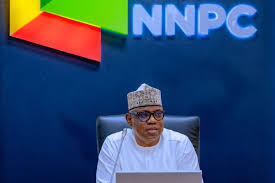Navigating the Complexities of Oil Resumption in Rivers State, Nigeria

Rivers State, located in Nigeria’s oil-rich Niger Delta region, has long been at the heart of the nation’s petroleum industry.
However, decades of oil extraction have left a legacy of environmental degradation, social unrest, and economic challenges.
Recent plans to resume oil drilling in areas like Ogoniland have sparked a mix of optimism and opposition, highlighting the intricate balance between economic development and environmental stewardship.
History
Ogoniland, a region within Rivers State, has endured significant environmental pollution due to extensive oil extraction activities. The contamination of land and water sources has severely impacted local communities, leading to loss of livelihoods and health issues.
In response, a $1 billion cleanup initiative was launched in 2018, following a 2011 United Nations report that underscored the urgency of remediation efforts.
In an effort to bolster Nigeria’s economy, President Bola Tinubu’s administration has proposed the resumption of oil drilling in the Niger Delta, particularly in Ogoniland. The government argues that restarting oil production could rejuvenate the local economy, create jobs, and increase national revenue.
However, this proposal has been met with significant resistance from environmental groups and local communities.
Environmental organizations have criticized the plan to resume drilling, emphasizing that many of the underlying environmental and social issues remain unaddressed. They argue that without comprehensive discussions and agreements with local communities, restarting oil extraction could exacerbate existing problems.
These groups have called for a substantial cleanup and compensation fund, the release of confiscated cultural artifacts, and the full implementation of previous UN recommendations before any new drilling commences.
The history of oil exploration in Ogoniland is marred by social unrest and allegations of human rights violations. The wrongful executions of environmental activists in the past have left deep scars in the community.
READ ALSO: E-paper: 10 things you need to know on The DailytimesNGR
Community leaders argue that without addressing these historical injustices and ensuring genuine engagement with local populations, resuming oil production could lead to further marginalization and conflict.
Proponents of resuming oil drilling highlight potential economic benefits, including job creation, infrastructure development, and increased state and national revenues.
They argue that with proper management and modern technologies, oil extraction can coexist with environmental conservation.
However, skeptics question whether the economic gains will truly benefit the local communities or primarily serve external interests.
Conclusion: Striking a Delicate Balance
The situation in Rivers State encapsulates the broader challenges faced by resource-rich regions worldwide: balancing economic development with environmental protection and social justice.
As Nigeria contemplates the resumption of oil drilling in Ogoniland, it must navigate these complex issues carefully, ensuring that the voices of local communities are heard, environmental concerns are addressed, and the potential economic benefits are equitably distributed.










